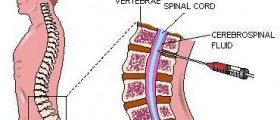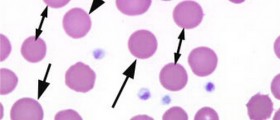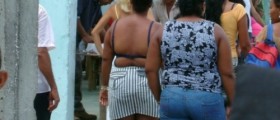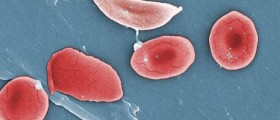Familial dysautonomia is a genetic disorder also known under the name Riley–Day syndrome. This disorder of the autonomic nervous system causes various developmental problems. Riley–Day syndrome affects the development, survival of sensory, sympathetic, and arasympathetic neurons in the autonomic and sensory nervous system. The symptoms of the disease are very specific and often include insensitivity to pain, inability to produce tears, stunned growth and very unstable blood pressure. This actually means that children born with Familial dysautonomia do not have some of the basic reflexes and instincts that people usually have. As a result, their body cannot operate normally, and it fails to control the blood pressure, heart rate, or to react normally on food. Because of this, Familial dysautonomia was considered a fatal childhood disease, for long. For many years, doctors have not expected these patients to live more than five years. Major advances in treatment have dramatically changed the outlook of the disease, and people with Familial dysautonomia now have much extended life expectancy. However, their symptoms and complications of the disease often lead to different health problems, which make it very hard for them to lead normal lives.
Signs and symptoms of Familial dysautonomia
Symptoms of Familial dysautonomia include insensitivity to temperature or pressure (pain and burns), inability to produce tears, inability to keep a steady blood pressure and heart rate, and inability to suck and swallow properly. Infants with Familial dysautonomia often swallow the food and fluids into their lungs rather than their stomachs. Therefore, they are always at risk of pulmonal infections and pneumonia. Very often, these patients need to take food via tube, to prevent infections and reduce the risk of complications.
The most severe symptom of Familial dysautonomia is known as the autonomic crisis. At the onset of the crisis patients, have extreme swings in blood pressure and heart rate. Their digestive system completely fails and they manifest severe personality changes. The crisis is so severe that it prevents any kind of normal activity. It usually lasts for a couple of hours to a couple of days. In many cases, patients require hospitalization, sedation and assisted hydration.
Incidence of Familial dysautonomia
This severe disorder is specific since it affects almost only people of Ashkenazi Jews. It is inherited in an autosomal recessive pattern, where both parents have to carry the faulty gene, for child to be affected. The carrier frequency in Ashkenazi Jews is 1 in 30; while in non-Jewish population, it counts for 1 in 3000 individuals.

















Your thoughts on this
Loading...